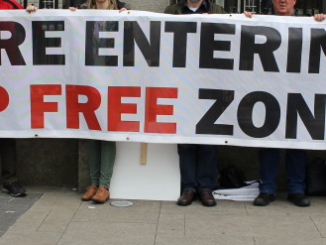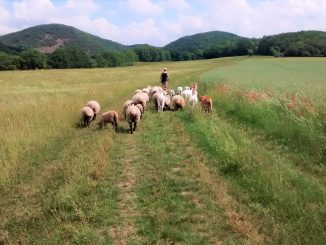
On June 29th US president Barack Obama signed Fast Track, also known as the Trade Promotion Authority. This follows the vote on 23rd June – by the narrowest of margins possible – in the US Senate to approve the controversial procedure. Fast Track establishes a process to rush (expedite) votes through Congress.
This means there will be no amendments and very limited debate for either TPP or TTIP in the US Congress. “Congress has forfeited its right to amend any international trade agreement for the next six years; all it can do is vote the proposed agreement up or down” the Institute for Agriculture and Trade Policy (IATP) reveal.
This extraordinary surrender of congressional authority will also be available for the next as yet unknown US President.
Karen Hansen-Kuhn (IATP) adds “Fast Track… was first created during the Nixon administration, and has been granted for a total of only five years in the last two decades. It last expired in 2007. Much of the focus in the media has been on TPP, since that agreement is closer to completion, but Fast Track would cover TTIP as well. It would extend for six years, so well into the completely unknown terrain of the next presidential administration, which might decide to enter into other trade deals.”
Obama needed and received exactly 60 votes in the Senate to allow him sign the Fast Track bill on 29th June.
Friends of the Earth International state that “Fast Track is widely opposed by the environmental community and broad swaths of civil society, including labor, civil rights, family farm, food safety, Internet freedom, senior citizen, public health and consumer advocates.”
The process for TPP in the US now is as follows:
1) Once negotiations are complete, TPP goes to Obama to be initialed
2) 90 day period after the initialing until Obama signs the TPP
3) After signing, the TPP is introduced into Congress
4) 30 days after signing, TPP is to be made public for 60 days
5) Congress has a maximum of 90 days before up/down vote
Meanwhile in the European Parliament, the disarray caused by the failure to hold a Plenary vote on the 10th June continues.
The Parliament’s INTA (Trade) Committee also voted on 29th June on the admissibility of the amendments, separate votes and split votes. All were approved with a wide majority with votes coming from all political groups.

Now the conference of Presidents has to decide this Thursday if it includes the TTIP debate and vote in the agenda of July, September or October.
INTA Press Release [FR]
Letter from more than 2,000 civil society groups opposing Fast Track
Letter from 44 environmental groups opposing Fast Track
$200 million to Senators in Fast Track vote
More
Arc2020 briefing notes on TTIP (updated)





